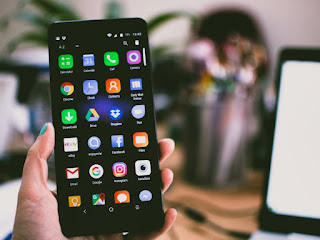How Many Hours Use Mobile In A Day Is Healthy?
It is generally recommended to limit the amount of time spent using a mobile phone. The specific amount of time that is considered healthy can vary depending on a person's age, lifestyle, and daily responsibilities. However, some general guidelines for mobile phone use include:
Children and teenagers: The American Academy of Pediatrics recommends that children and teenagers should not spend more than two hours per day using electronic devices, including mobile phones.
Adults: The World Health Organization recommends that adults should aim to limit their mobile phone use to less than two hours per day.
Older adults: It may be beneficial for older adults to limit their mobile phone use to even less than two hours per day.
It is important to note that these guidelines are just that - guidelines. It is ultimately up to each individual to determine how much mobile phone use is appropriate for their own needs and circumstances. It is also important to consider the impact of mobile phone use on sleep, as well as the potential for distractions or disruptions to daily activities.
What Are The harmful effects of mobile phones?
Here are 13 potential harmful effects of mobile phone use:
1- Sleep Disruption:
The blue light emitted by mobile phones can interfere with the production of the sleep hormone melatonin, making it more difficult to fall asleep or stay asleep.
2- Eye Strain:
Prolonged use of mobile phones can lead to eye strain, dry eyes, and other vision-related issues.
3- Neck And Back Pain:
Poor posture while using a mobile phone, such as looking down at a screen for long periods of time, can cause neck and back pain.
4- Social Isolation:
Excessive mobile phone use can lead to a decrease in face-to-face social interactions, which can contribute to feelings of loneliness and isolation.
5- Cyberbullying:
Mobile phones can be used to facilitate cyberbullying, which can have serious emotional and mental health consequences.
6- Distractions:
Mobile phone use can be a distraction while driving, walking, or participating in other activities, leading to an increased risk of accidents or injuries.
7- Dependence:
Some people may develop a dependence on their mobile phones, which can lead to feelings of anxiety or distress when the phone is not available.
8- Exposure To Radiation:
Mobile phones emit non-ionizing radiation, which has been linked to an increased risk of certain types of cancer.
9- Impact On Relationships:
Excessive mobile phone use can lead to conflicts in relationships and a decrease in quality time spent together.
10- Privacy Concerns:
The use of mobile phones can raise concerns about privacy, as personal information and location data may be collected and shared without an individual's knowledge or consent.
11- Poor Physical Fitness:
Spending too much time on a mobile phone can decrease the amount of time available for physical activity, leading to decreased physical fitness.
12- Increased Risk Of Developing Cancer:
Some studies have suggested a possible link between mobile phone use and an increased risk of certain types of cancer, although more research is needed to confirm this association.
13- Decreased Productivity:
Overuse of mobile phones can lead to decreased productivity and focus, as well as difficulty completing tasks.
How To Stop Phone Addiction?
There are several strategies that can be helpful for individuals who want to reduce their mobile phone addiction or use their phone more responsibly:
1- Set Limits:
Consider setting limits on the amount of time you spend on your phone each day, as well as specific times when you will not use your phone (e.g., during meals, while driving, or before bed). You can use a phone tracking app to help you monitor and control your phone usage.
2- Create Phone-Free Zones:
Designate certain areas of your home or workplace as phone-free zones where you will not use your phone. This can help you focus on other activities and reduce distractions.
3- Use the "Do Not Disturb" Feature:
Enable the "Do Not Disturb" feature on your phone during times when you do not want to be interrupted, such as when you are working or spending time with loved ones.
4- Turn Off Notifications:
Consider turning off non-essential notifications on your phone, or setting specific times when you will check your notifications rather than responding to them immediately.
5- Find Alternative Activities:
Seek out alternative activities that do not involve phone use, such as hobbies, sports, or socializing with friends and family in person.
6- Seek Support:
If you are finding it difficult to reduce your phone usage on your own, consider seeking the support of a therapist or joining a support group to help you address your phone addiction and make positive changes in your life.
"It is important to remember that it is normal to use a mobile phone and that it can be a useful tool in many situations. The key is to use it responsibly and in moderation, rather than allowing it to consume too much of your time and attention".



.png)

0 Comments